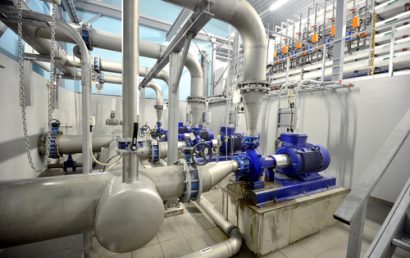What Are The Differences Between Sacrificial Coatings And Barrier Coatings?
Throughout all industries, one of the leading causes of component failure is corrosion. Where corrosion protection offered by functional coatings is concerned, the two protective categories responsible essentially boil down to barrier coatings and sacrificial coatings. What helps to determine which system of coating should be used? The following figure into the equation:
- Must the coating achieve additional performance criteria?
- Concerning the corrosion to be combated, what type is it?
Before you can decide which coating is best for your purposes, you must understand the differences between the two. Let’s explore their variations.
What Are Sacrificial Coatings?
Certain elements are contained within sacrificial coatings. Two examples of this are aluminum and zinc. To ensure a continuous corrosion free existence for a component’s substrate, these coatings sacrificially corrode. So, rather than the surface/component to which they are applied, the coating will corrode instead. This helps to maintain the substrate’s structural integrity.
Many forms of corrosion can be combated through the use of barrier coatings. For resisting chemical corrosion, they are particularly ideal. This is even true when temperatures are elevated. Typical barrier coatings include phenolic based resin systems or fluoropolymer based.
Benefits offered by sacrificial coatings include the following:
- The surface to which they are applied is not affected because they are invisible
- Breathable
- Less disruption is present because they are easy and fast to apply
- Environmentally friendly because they are mostly water-based
Relatively inexpensive substances are used in sacrificial coating manufacture. Some of these are as follows:
- Biopolymers
- Clear polymers
- Waxes
- Acrylates
What Are Barrier Coatings?
By preventing external elements from substrate penetration, barrier coatings use/provide a plastic resin layer. At the very least, one plastic resin protection layer is contained by every barrier coating. Some, in fact, offer differing functionality due to the fact that they possess additional filter layers. Various application factors and requirements determine precisely what type of barrier coating will be used.
Who Needs Corrosion Resistant Coatings?
Be they sacrificial coatings or barrier coatings, corrosion resistance in a coating is required for numerous industries. As an example, thermal coatings have been approved by the United States Navy for various structural components. Some of these include the following:
- Ship structures
- Bridges
- Large pipelines
- Wind turbines
In salt spray tests, coatings such as these have lasted between 1500 and 2000 operational hours. For corrosion resistance in the following, these coatings have also been approved:
- Exhaust pipes
- Pump housings
- Generator mufflers
- Valve bodies
- And other components that are exposed to materials considered chemically corrosive
Though geared more toward combating galvanic and/or atmospheric corrosion, sacrificial coatings are typically resistant to most automotive fluids and fuels. From mid-size down to small automotive components, sacrificial coatings are usually ideal. They tend, in terms of atmospheric corrosion, to outlast barrier coatings. Additionally, they can do so while applied at thinner film thicknesses.
Where to Go for Sacrificial or Barrier Coatings
A&A Coatings already serves numerous industries by supplying them with corrosion resistant coatings – both sacrificial and barrier – to protect components, machinery, equipment, and other various surfaces. We can do the same for your company and, in fact, probably already are somewhere in your industry!
Contact us today if you’d like to find out more.



